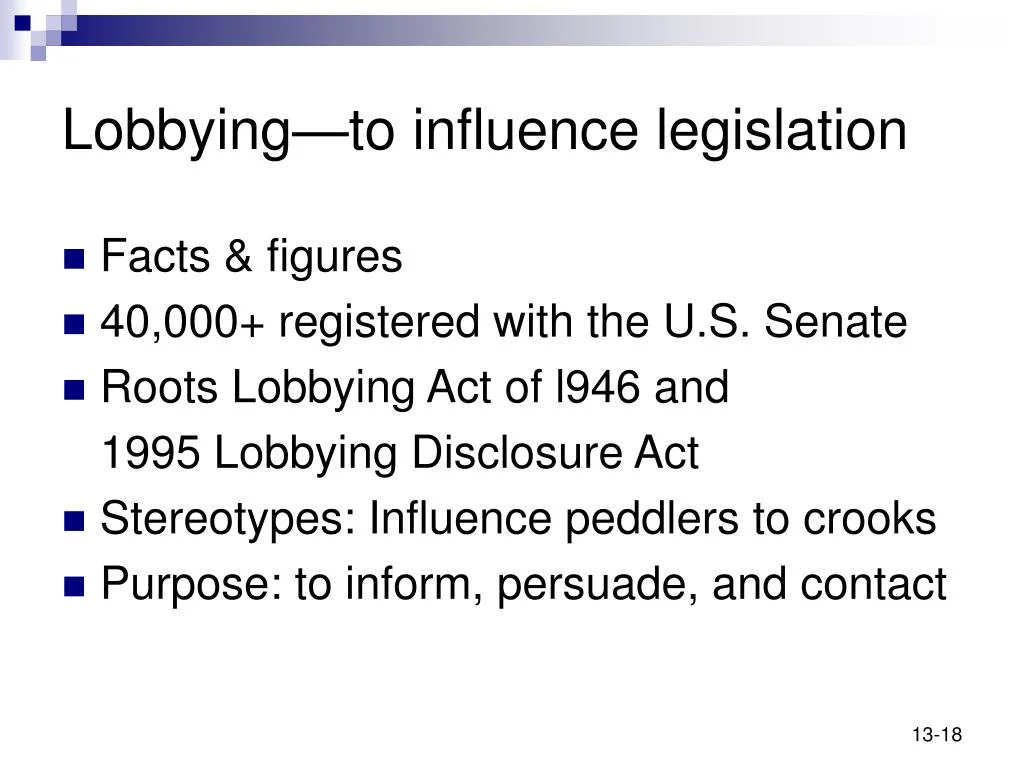The influence of lobbying on legislation is a widely debated topic in political circles. Lobbying, which involves individuals or groups attempting to influence lawmakers to create legislation that benefits their interests, has a significant impact on the legislative process. It is often seen as a crucial aspect of democracy, allowing citizens to voice their concerns and advocate for policies that align with their values. However, critics argue that lobbying can lead to the creation of laws that primarily serve the interests of powerful corporations or wealthy individuals, rather than the general public. The influence of lobbying on legislation can shape the direction of government policies and impact the lives of citizens in various ways.
The Impact of Advocacy on Lawmaking
The Role of Special Interest Groups in Legislative Decision-Making
The Effect of Political Pressure on Policy Formation
The Power Dynamics in Influencing Legislative Processes
The Influence of Lobbying on Government Decision-Making
The Role of Lobbying in the Legislative Process
Lobbying plays a significant role in the legislative process by influencing the decisions made by lawmakers. Lobbyists, who are often hired by special interest groups, corporations, or advocacy organizations, work to persuade legislators to support or oppose specific policies, regulations, or legislation. They do this by providing information, research, and resources to lawmakers, as well as by organizing events, campaigns, and other efforts to gain support for their cause.
Through lobbying, special interest groups can have a direct impact on the development and outcome of legislation. Lobbyists often meet with lawmakers to discuss their interests, present evidence and arguments in support of their position, and advocate for their preferred policies. This can ultimately shape the legislative agenda and lead to the introduction, modification, or defeat of proposed laws and regulations.
The Influence of Money in Lobbying Efforts
Money plays a significant role in lobbying efforts, as it allows special interest groups and corporations to allocate resources towards influencing legislation and policymakers. Lobbyists may contribute to political campaigns, fund events or initiatives that support their cause, and engage in other financial activities to gain access and influence within the legislative process.
Additionally, the promise of future financial support or the threat of withdrawing financial backing can be used as leverage to sway lawmakers to support specific policies or legislation. This financial influence can create ethical concerns and raise questions about the integrity of the legislative process and the extent to which money influences decision-making in government.
The Regulation of Lobbying Activities
Given the potential for undue influence and corruption, many governments have implemented regulations and disclosure requirements for lobbying activities. These regulations often require lobbyists to register with the government, disclose their clients and activities, and adhere to certain codes of conduct and ethics.
By regulating lobbying activities, governments aim to increase transparency, accountability, and integrity within the legislative process. These regulations can help to mitigate the negative impacts of lobbying, ensure that the public is aware of the interests at play, and prevent undue influence on lawmakers and legislation.
The Impact of Lobbying on Public Policy
Lobbying can have a significant impact on public policy by shaping the development and outcome of legislation and regulations. Special interest groups and lobbyists work to influence policymakers in favor of their positions, often leading to the adoption of policies that align with their interests and priorities.
As a result, lobbying can impact a wide range of public policy issues, including healthcare, environmental regulations, taxation, trade, and more. The influence of lobbying on public policy can lead to policies that prioritize the interests of certain groups over the broader public good, raising questions about the fairness and equity of the legislative process.
The Ethical Considerations of Lobbying
Lobbying raises ethical considerations related to the influence of special interests on the legislative process and the potential for conflicts of interest among lawmakers. The close relationship between lobbyists and policymakers can raise questions about the impartiality and independence of decision-making within government.
Additionally, the use of financial resources and other incentives to sway lawmakers can raise ethical red flags and lead to concerns about the fairness and transparency of the legislative process. As such, ethical considerations are an important aspect of discussions surrounding lobbying and its impact on legislation.
The Role of Public Opinion in Countering Lobbying Influence
Public opinion can play a crucial role in countering the influence of lobbying on legislation. When the public is informed and engaged on specific policy issues, they can exert pressure on lawmakers to prioritize the broader public interest over the interests of special interest groups and lobbyists.
Through advocacy, grassroots movements, and public awareness campaigns, the public can influence the legislative agenda and hold lawmakers accountable for their decisions. By mobilizing public opinion, citizens can work to counterbalance the influence of lobbying and ensure that legislation reflects the needs and priorities of the general population.
The Role of Transparency in Mitigating the Influence of Lobbying
Transparency in lobbying activities is essential for mitigating the undue influence of special interest groups on legislation. When lobbying activities are transparent and publicly disclosed, the public and policymakers can better understand the interests at play and assess the potential impact on legislative decisions.
By promoting transparency, governments can create a more open and accountable legislative process, reducing the potential for hidden agendas and undisclosed influences. Transparency can help to build trust in the legislative process and ensure that decisions are made in the public interest rather than for the benefit of a select few.
The Need for Balanced Representation in the Lobbying Process
Ensuring balanced representation in the lobbying process is crucial for a fair and equitable legislative system. It is important for legislators to consider a diverse range of perspectives and interests when making decisions, rather than being disproportionately influenced by well-funded or powerful lobbying efforts.
By promoting inclusivity and diversity in the lobbying process, lawmakers can gain a more comprehensive understanding of the potential impacts of legislation and make more informed decisions that reflect the needs of all citizens. This can help to counteract the disproportionate influence of certain lobbying groups and promote a more democratic and representative legislative process.
| Lobbying Activity | Legislative Influence |
|---|---|
| Direct contributions to political campaigns | May result in favorable legislation for the lobbying organization |
| Providing information and expertise to lawmakers | Can shape legislation by influencing lawmakers’ understanding of key issues |
| Organizing grassroots campaigns and public relations efforts | Can generate public support for specific legislation, putting pressure on lawmakers |
| Revolving door practices, where former lawmakers become lobbyists | Can leverage personal connections and knowledge of the legislative process |



